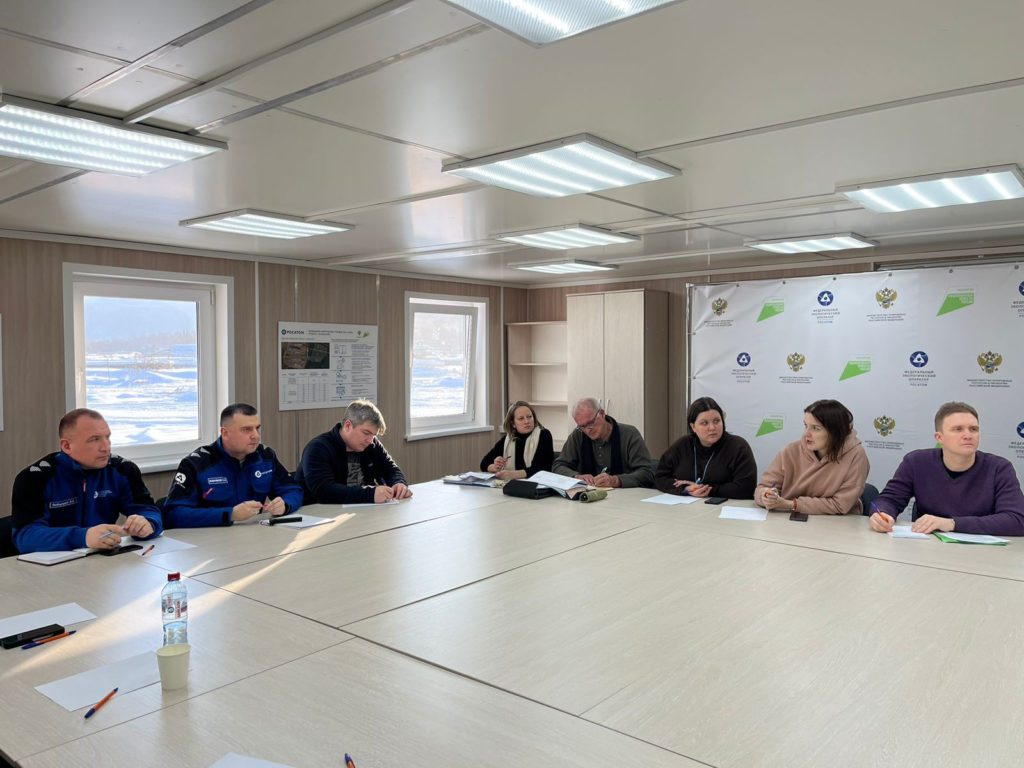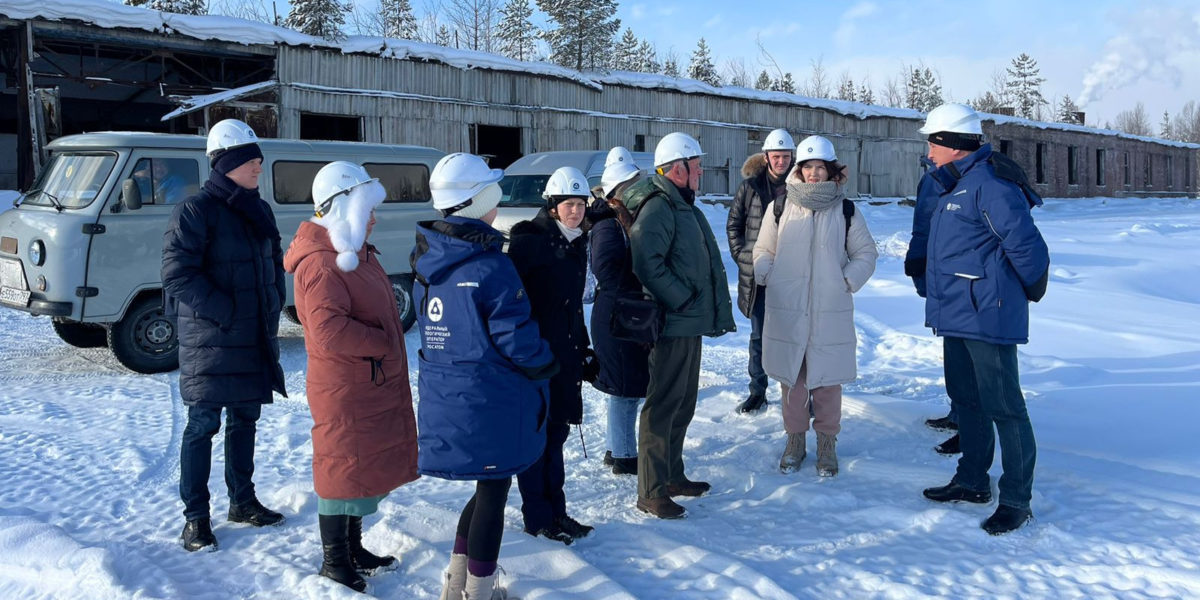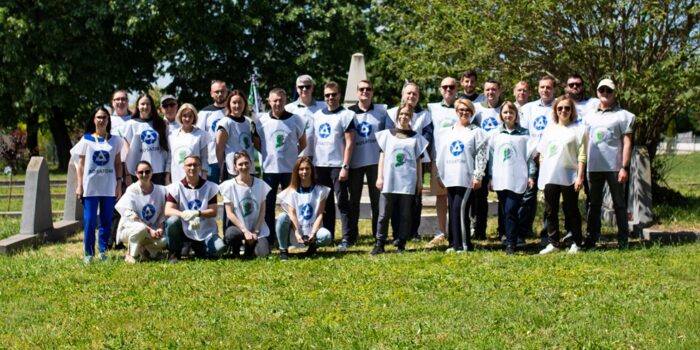Experts from UNESCO and the International Union for the Conservation of Nature and Natural Resources visited the industrial site of the former Baikal Pulp and Paper Mill JSC (BPPM JSC) as part of the next monitoring mission of the Lake Baikal World Heritage Site where the Federal Environmental Operator (Rosatom’s entity) is successfully implementing a number of measures to bring the site to a state safe for the environment and public health. The facilities subject to the elimination of accumulated environmental damage caused by the former BPPM JSC were the first places visited by the UNESCO monitoring mission in Russian Federation.
Stanislav Zhabrikov, Director for the Implementation of Environmental Projects of the Federal Environmental Operator (FEO FSUE, Rosatom’s entity), told the experts about the approaches to choosing design and process solutions and familiarized them with the current status of the work. “A set of measures and process solutions proposed by our specialists takes into account both the characteristics of accumulated industrial waste and the geological specifics of the sites. A multi-stage purification technology, which includes more than ten different stages, intended for use for the neutralization of slime waters and alkali-containing runoff, enables to meet the most stringent environmental standards. I would like to draw attention to the fact that the process solutions of the project were subject to a separate expert review by the Scientific Council on Global Environmental Problems of the Russian Academy of Sciences,” he said.
To date, the facilities have almost completed the preparation of construction sites and process areas, where the main process equipment will be placed. The foundations for future sewage treatment facilities are being built, and the necessary engineering and transport infrastructure is being created.

A separate point of particular attention of the mission’s experts was the results of industrial environmental control and monitoring of elimination efforts. “The environmental monitoring program for the two facilities altogether provides for the organization of 66 control stations for all environmental components. According to the results of the first six months of elimination activities, the vast majority of indicators (in total we monitor almost 100 environmental parameters) comply with current sanitary and hygienic standards,” said Tatyana Ospanova, an ecologist at FEO FSUE.
Following the results of the mission, experts noted a high level of involvement of all participants in the conservation of Lake Baikal. The final report will be submitted by March 2024.
Reference
After the termination of the activities of BPPM JSC, the former industrial waste management facilities of the once unified process cycle of pulp production, such as the Babkhinsky and Solzansky landfills, as well as the site of the plant’s sewage treatment facilities, began to pose a serious environmental threat to the Baikal region. The industrial waste accumulated over more than 50 years of the company’s operation contains more than 3 thousand tons of pollutants that are hazardous or particularly hazardous for the unique ecosystem of Lake Baikal. In the summer of this year, elimination activities began on the territory of the sewage treatment facilities and the Babkhinsky landfill. A complex of measures to bring the facilities to a safe state is planned to be completed within the next four years, which will completely eliminate the risks of the components of accumulated waste entering the environment and Lake Baikal.
Rosatom is consistently taking steps to transition to a green economy. Reduction of negative impact on the nature, preservation and replenishment of biological resources are the top-priority objectives of the Russian nuclear industry in environmental protection. Rosatom is working on a number of strategically important areas for the country, including ecology. Rosatom’s separate environmental division is working to attain the crucial nationwide objectives as part of the national Ecology project. Today, work is being carried out by Rosatom’s entities — Federal Environmental Operator FSUE and Rusatom Greenway JSC — on four federal projects at once: Infrastructure for Management of Waste of Hazard Classes I–II, Clean Country, Preservation of Lake Baikal, and Clean Air.




